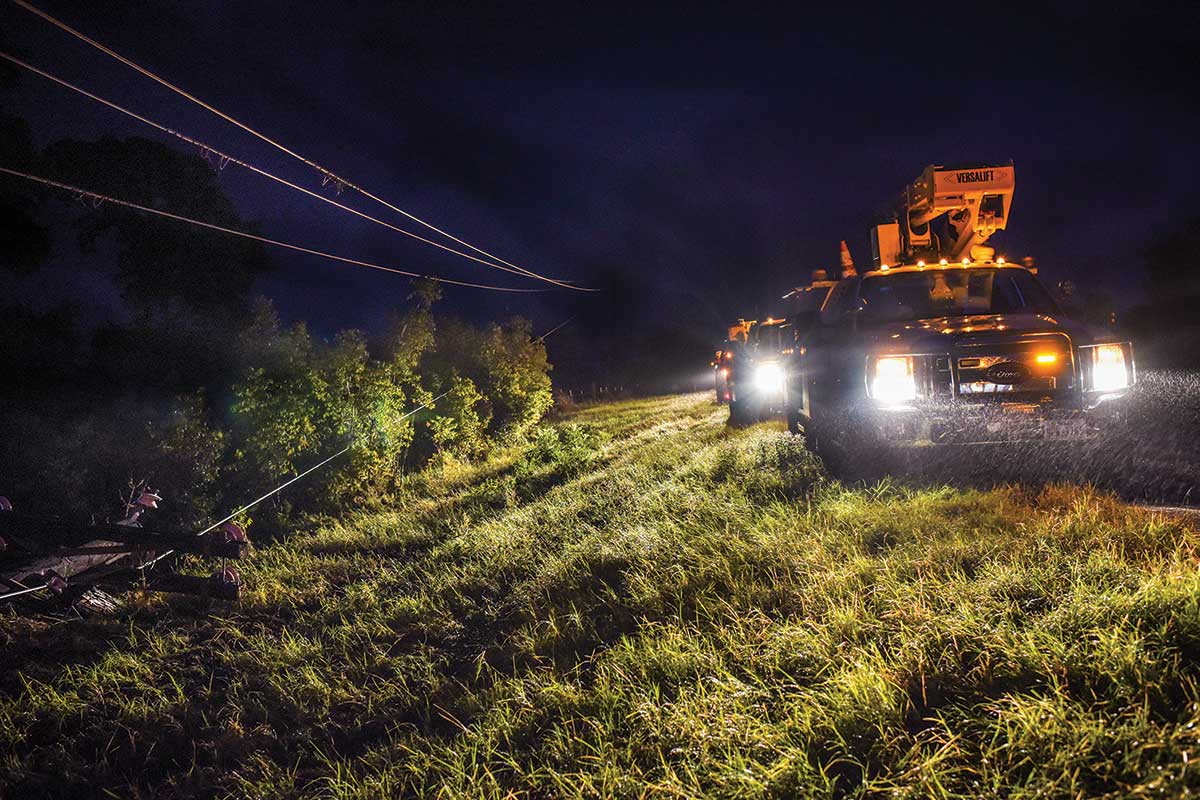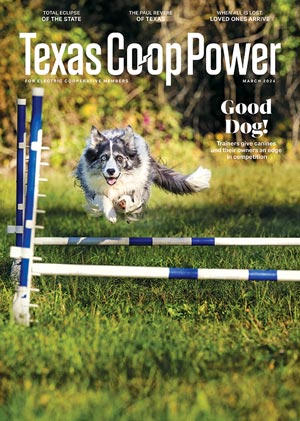Working with electricity can be a dangerous job, especially for lineworkers. In fact, USA Today lists line repairers and installers among the most dangerous jobs in the U.S. That’s why for your electric cooperative, safety is the No. 1 priority. This is not empty talk. Over time, we have created a culture of putting our crews’ safety and that of the community above anything else.
Our mission is to provide safe, reliable and affordable energy to you, our consumer-members. Yes, we strive to deliver affordable and reliable electricity to you, but equally important, we want our employees to return home safely to their loved ones. This requires ongoing focus, dedication, vigilance—and your help!
Distractions Can Be Deadly
While we appreciate your kindness and interest in the work of our crews, we ask that you stay back and let them focus on their task at hand. Even routine work has the potential to be dangerous, and it takes their full attention and that of their colleagues, who are also responsible for the team’s safety. Distractions can have deadly consequences.
If a lineworker is on or near your property during a power outage, for vegetation management or for routine maintenance, please allow them ample room to work. These small accommodations help protect our crews—and you.
If you have a dog, try to keep it indoors while lineworkers are on or near your property. While most dogs are friendly, some are defensive of their territory and can’t distinguish between an intruder and a utility worker. Our crews work best without a pet “supervising” the job.
We recognize that for your family’s safety, you want to make sure only authorized workers are on or near your property. You’ll recognize your electric cooperative employees by their uniforms with our logo clearly displayed and the service trucks with our name and logo on them. You may also recognize our lineworkers because they live right here in our community.
Slow Down and Move Over
In addition to giving lineworkers some space while they’re near your property, we also ask that you move over or slow down when approaching a utility vehicle on the side of the road. This is an extra barrier of safety to help those who help all of us.


